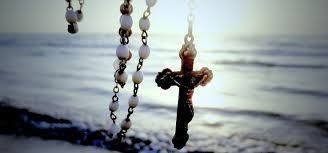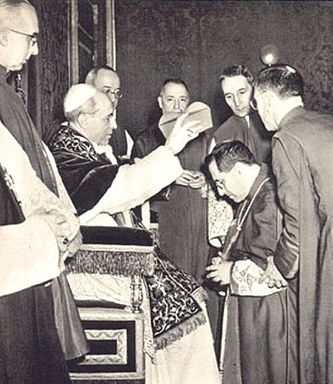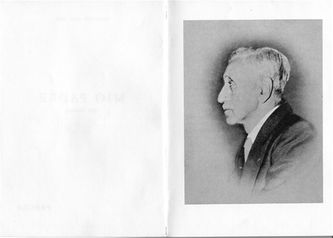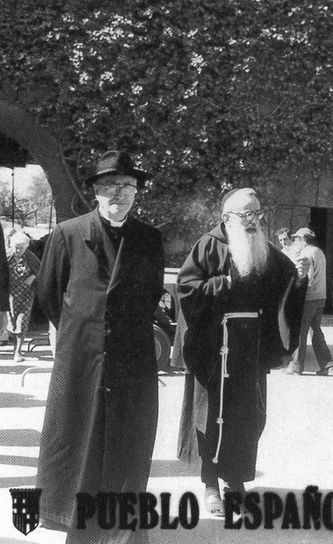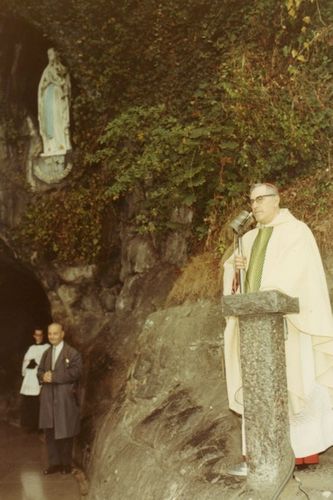"Cardinal" Giuseppe Siri of Genoa: The Pope in Red [1958 - 1989]
We Are Now Being Tried
We are now in a time of being tried: and in trying times it is easier to see the darkness than it is to see the light. However the light is present; the same power of darkness is a means of purification which makes us more capable of seeing the light. The darkness cannot win over the light. We know that our Lord leads things in goodness: and uses the sufferings and the same sins of man because the greater goodness results.
When, one hundred years ago, the temporal power fell, the Pope seemed like a prisoner. The modest means of social communications of that time screamed: "The End of the Papacy." Instead, a great season of the Papacy was about to be communicated. And the same loss of power contributed to it. This is not to say that we must salute the politicians of that time as liberaters of the Church; it is that God uses some of the works of everybody for the good of His people, and of all humanity. It will also be like this tomorrow: in our difficulties, one should only consider the light. Our human weakness, isolation, sense of defeat will appear changed by the power of God, as a sign of glory in His city.
It is through the light of the Cross of the Lord that the night becomes lit. I am not a pessimist, I only reveal that the time has been made dark because the shadow of the cult of material things extends throughout the world. I have always noticed that, in general, the theological errors derive from marxist pollution ...".
[Source: Pensiero del Cardinale Giuseppe Siri, from his theological magazine "Renovatio", VI, 1970].
"The Rock" [Pope Gregory XVII explains the Primacy of the Papacy]
Archbishop Giuseppe Siri is here being raised to the Cardinalate. He was the last Cardinal created by Pope Pius XII, and the youngest.
The Rock
In the gospel of Matthew (16,18) the “Rock” is Peter, who is not only a person, but an “institution”.
The Church, founded by Christ upon that “Rock” –Peter--, clearly appears (in the cited text) to aquire solidity, stability, and indefectibility.
The link between the consistency of the “Rock” – Peter—and the consistency of the Church seem so indisputable that unwarranted inference is not made, qualifying the same Church as the “Rock”.
Here we talk about this “Rock” that Christ wanted.
That being said, there are some important considerations.
The Church gives security because it is the “Rock”, not an agglomeration, not built on sand. The meaning of the word “rock” is a signification,which goes beyond even the usual sense of metaphor: in fact, the rocks of the earth get cracks as time goes on, by the actions of weathering. This “Rock” has neither cracks nor crumbling, given that the effect of Its solidity is guaranteed in the text of Matthew as being until the end of Time.
The Rock remains and no one can scratch it. But sometimes men can remove the vision of the Rock away from others. Another thing can [appear] to be the Rock, another thing which looks to be such to everyone. The distinction is profound, even when human errors can veil the Reality, while they cannot destroy It. In short, and easy for all, the question of the “visibility” of the Rock is put forward.
The consequences would be grave if it happened that some men removed the visibility of the “Rock” in the Church. He who converts to the Church, converts because he is convinced that he has found the “Rock”, not doubt, excitement, contradiction, [or] doctrinal anarchy. He converts when he knows that he rests on the safe side, on the durable, on the indisputable. He converts when he knows that his hope is not inane. Take away the visibility of the Rock: what will this man do?
It is necessary that the “Rock” stay visible in Its compactness and invulnerability.
The word “rock” indicates a grave and certain reality, which comes to be expressed with a strong metaphorical significance.
Perhaps it is not bad to leave the metaphor for a moment.
Here are the elements by which the Church, with full and pure significance, can be called the “Rock”.
She has as her Head, and the Divine Guarantee of, Jesus Christ. He has assigned Her with four distinctive marks which are mentioned in the Constantinopolitan Nicene Symbol.
She has the legitimate and secure sacramental efficacy. [Notice that the Church and the Papacy are inseparable. –Editor].
She has the entire Truth, guarded with warranty. She has, therefore, the impelling and pacifying distinction between Truth acquired with certainty, and hypotheses, opinions, the always free research. She has it all because in Her functions an infallible Magisterium.
Infallible Teaching [the Magisterium] is bound to the hierarchical structure of the Church.
This is why he who does not see the Hierarchy, does not see the “Rock”. Once lost, security is not easily acquired.
[Published in Renovatio: rivista di teologia e cultura, April-June 1967, Year II, Number 2, Genova].
Pope Gregory XVII's Tribute to His Father
The small book titled "My Father" was written for family and close friends, some years after his father's death, and, interestingly, after the last of the Cardinals who were truly Catholic died.
The English translation is made available here. The other languages, including the re-typing of the original Italian, will follow as soon as possible.
The Present Situation in the Church
On a trip to Spain. The Hidden Pope is with his confessor, Fr. Damasso, ofm cap.
“Right. The present situation in the Church is one of the most grave in its history, for this time the challenge does not come from outer persecution, but from inner perversion. This is very grave. But the gates of Hell will not prevail.”
(The New Montinian Church, Saenz y Arriaga, Fr. Joaquin, translated and published by Edgar A. Luicidi, M. D., 1985, p. 350).
Analysis of quotation: The significance of the Biblical reference to Christ's promise to St. Peter, "But the gates of Hell will not prevail." is to point to the fact that there is an attack today on the Papacy, that Pope Gregory XVII's state of exile is actual, but that there will be a restoration of a True Pope, a Successor from his line, the one true papal lineage. Thus the "perversion" can be understood to mean the usurpation of the Papacy by false princes (enemies) who infiltrated to become electing cardinals. As Pope Gregory XVII told Fr. Khoat in 1988, this happened at the Conclave of 1958, after the death of Pope Pius XII. (see: www.papalrestoration.com)
A Devotion to the Blessed Virgin that Lasted a Lifetime
Pope Gregory XVII at the Lourdes Grotto in the 1970's.
"When, many years later, it fell on me to consecrate the old sanctuary at Our Lady of Graces, I was happy. Another point of reference was the Sanctuary of the Holy Water [Acquasanta]. I believe there was a family tradition to pass the mountain and go up on foot to the Acquasanta; [my father] himself conserved the devotion until the end. Once, when at ten years of age, I was about to enter the seminary, he wanted to bring me to the Acquasanta; perhaps to put me in the hands of the Blessed Mother. There I would buy the acquasantino that would make up part of my trousseau. So many times in my life I have felt the presence of the Most Holy Virgin: I believe I owe it to my father. What's more, when I was born premature and in danger of dying, he himself, he told me many years later, had offered me to the Holy Mother." (My Father, p.11)
